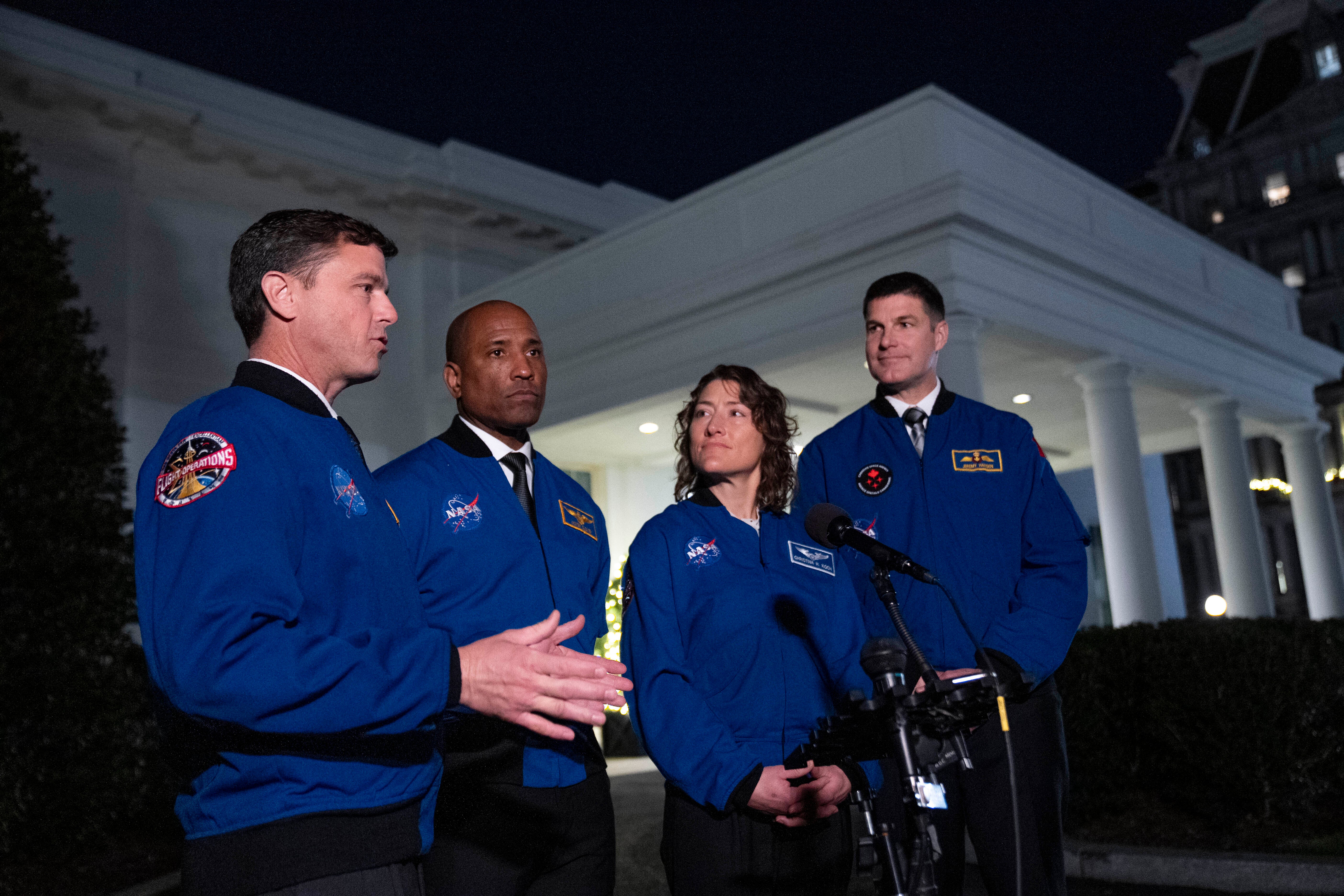International astronaut will be invited on future NASA moon landing
NASA and the White House say an international astronaut will be invited on a future moon landing

An international astronaut will join U.S. astronauts on the moon by decade's end under an agreement announced Wednesday by NASA and the White House.
The news came as Vice President Kamala Harris prepared to convene a meeting of the National Space Council, the third such gathering under the Biden administration.
There was no immediate word on who the international moonwalker might be or even what country would be represented.
NASA has included international astronauts on trips to space for decades. Canadian Jeremy Hansen will fly around the moon a year or so from now with three U.S. astronauts.
Another crew would actually land; it would be the first lunar touchdown by astronauts in more than a half-century. That's not likely to occur before 2027, according to the U.S. Government Accountability Office.
All 12 moonwalkers during NASA's Apollo program of the 1960s and 1970s were U.S. citizens. The space agency's new moon exploration program is named Artemis after Apollo's mythological twin sister.
NASA has long stressed the need for global cooperation in space, establishing the Artemis Accords along with the U.S. State Department in 2020 to promote responsible behavior not just at the moon but everywhere in space. Representatives from all 33 countries that have signed the accords so far were expected at the space council's meeting in Washington.
Notably missing from the accords: Russia and China, the only countries besides the U.S. to launch their own citizens into orbit. Russia is a partner with NASA in the International Space Station, along with Europe, Japan and Canada. Even earlier in the 1990s, the Russian and U.S. space agencies teamed up during the shuttle program to launch each other's astronauts to Russia's former orbiting Mir station.
During Wednesday's meeting, Harris also planned to announce new policies to ensure the safe use of space as more and more private companies and countries aim skyward. Among the issues that the U.S. is looking to resolve: the growing amount of space junk around Earth and climate change.
___
The Associated Press Health and Science Department receives support from the Howard Hughes Medical Institute’s Science and Educational Media Group. The AP is solely responsible for all content.
Bookmark popover
Removed from bookmarks